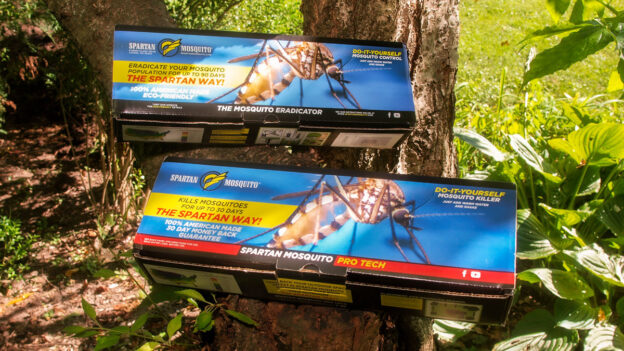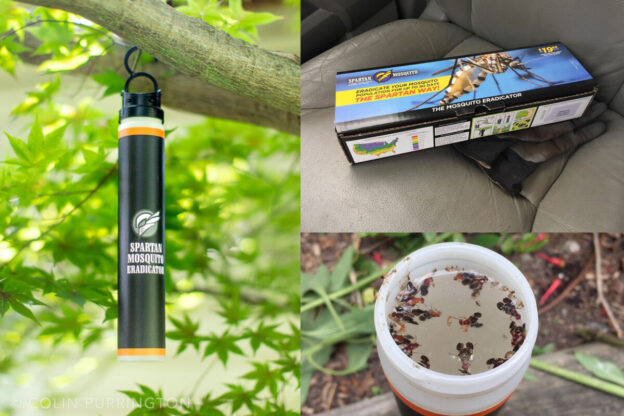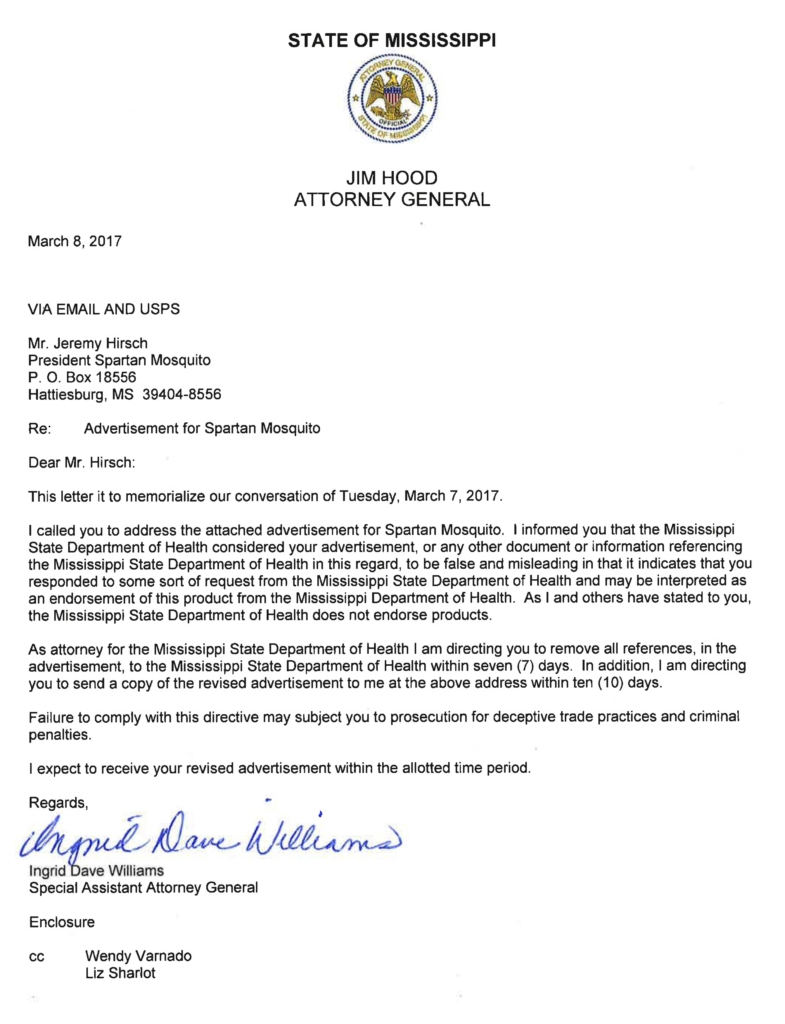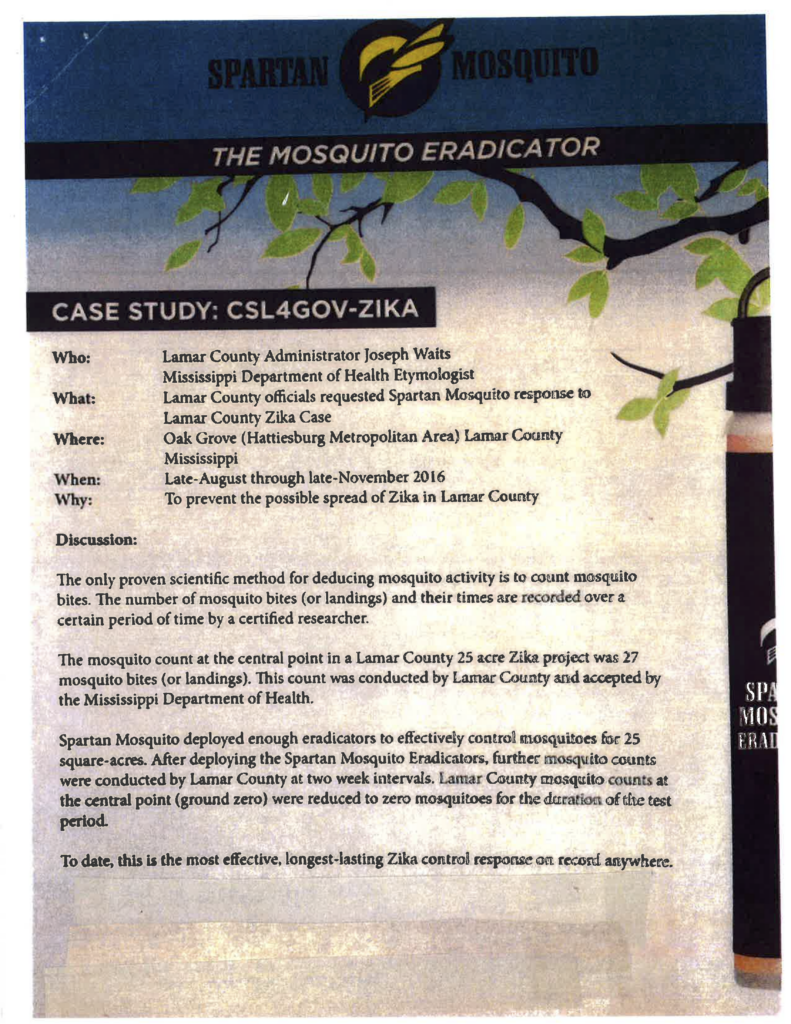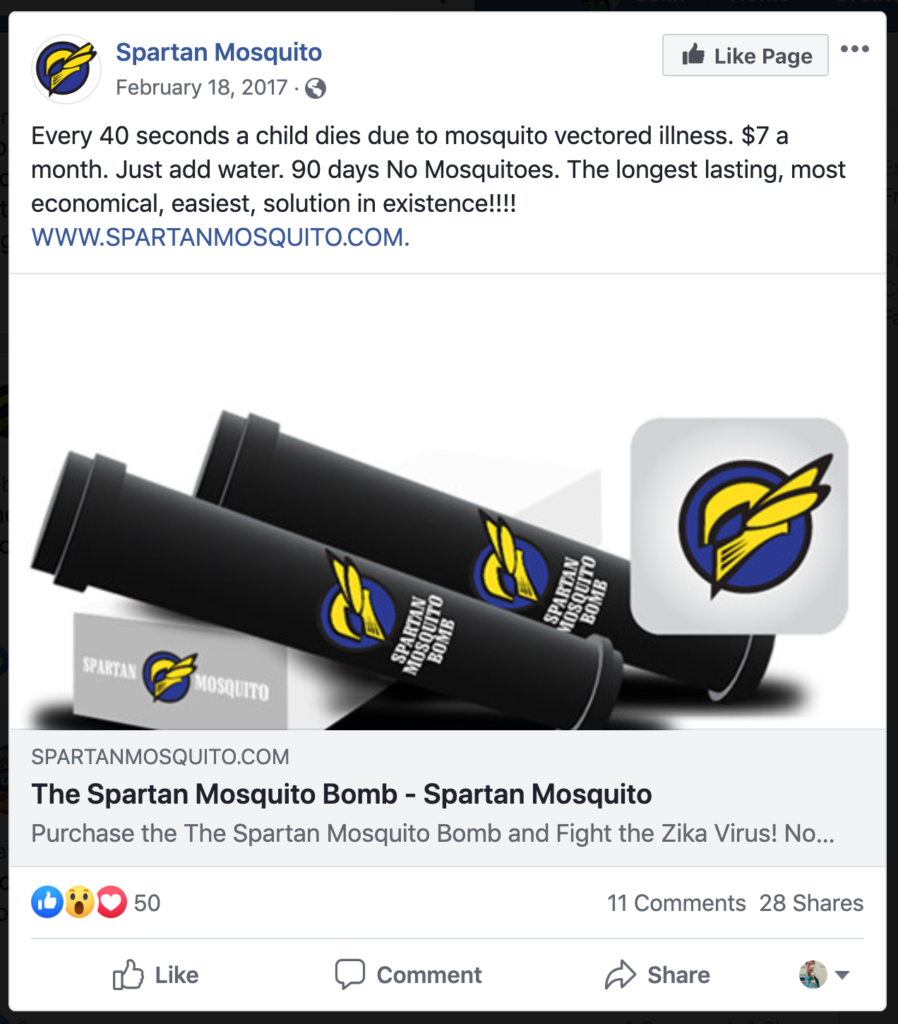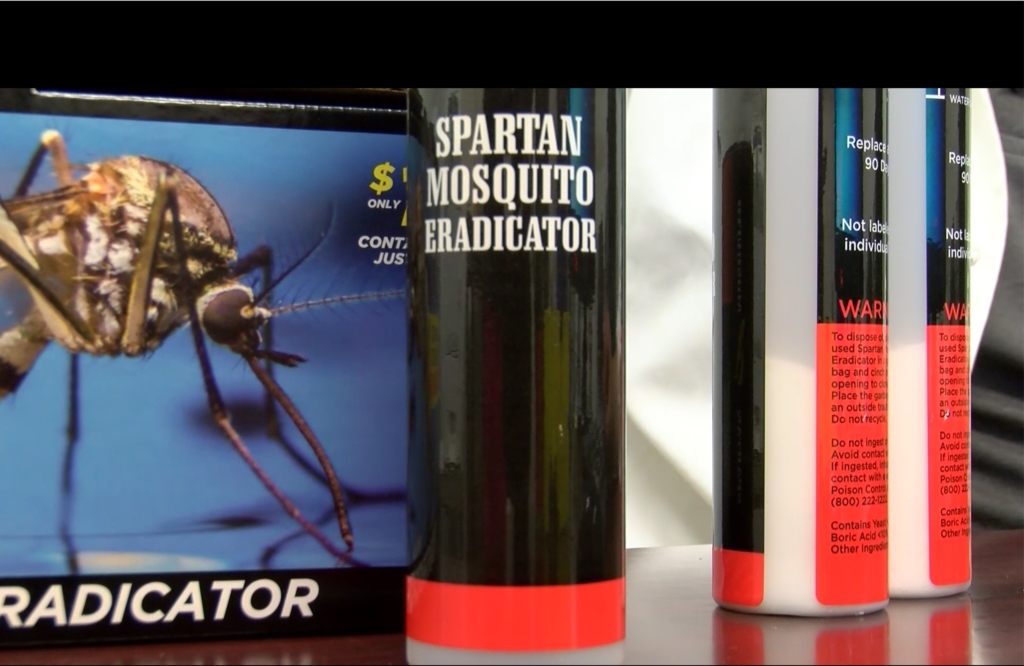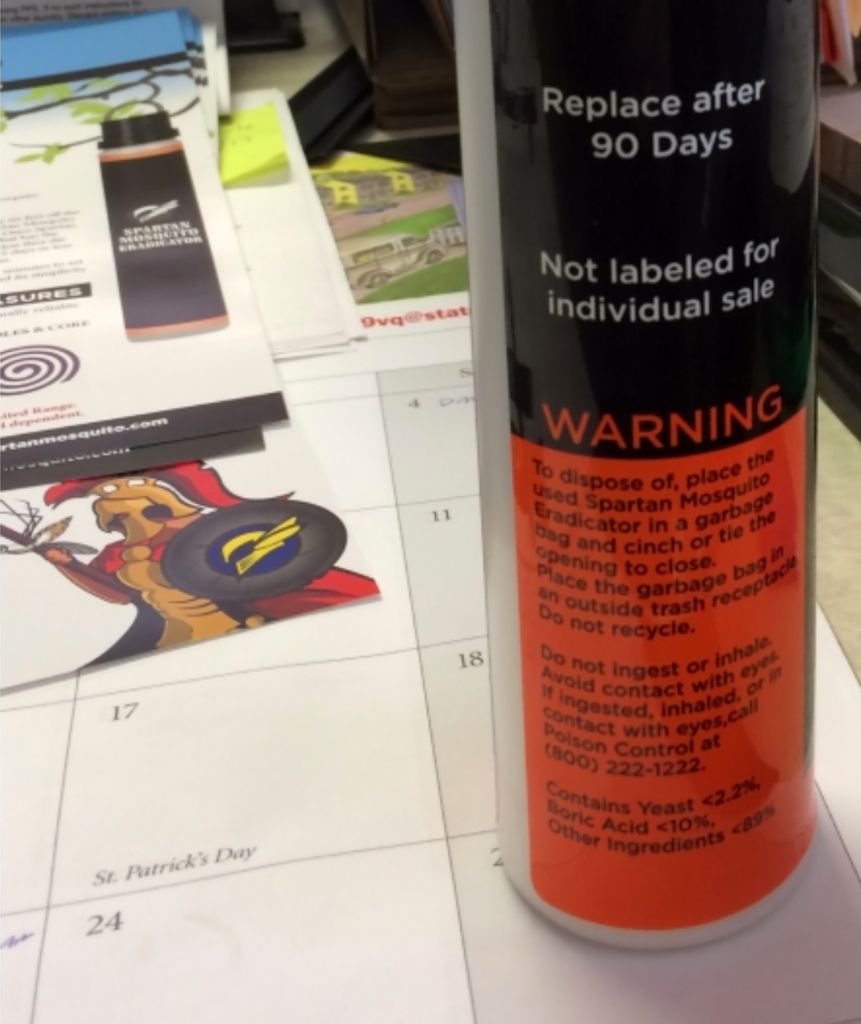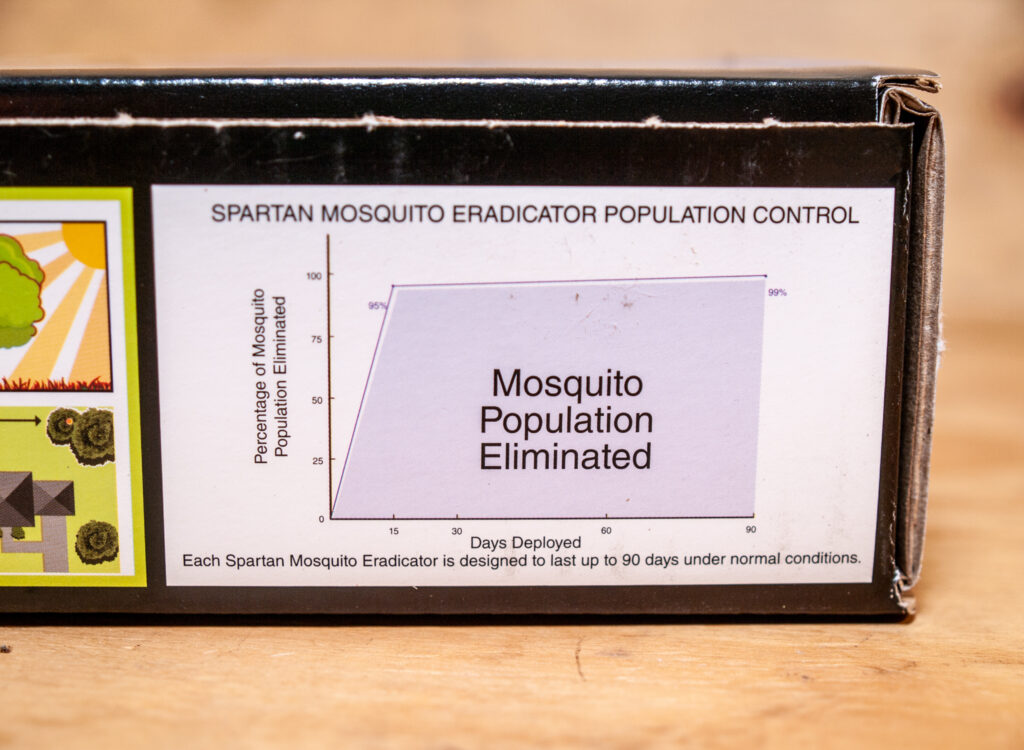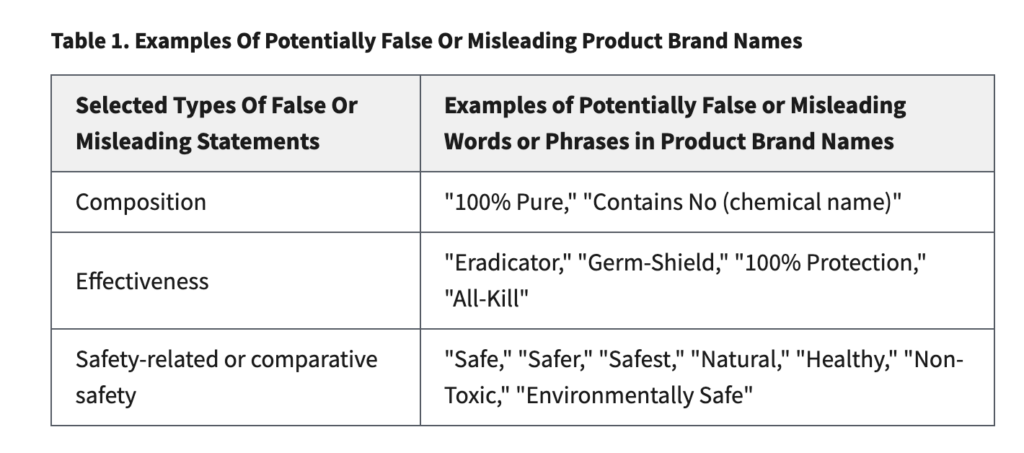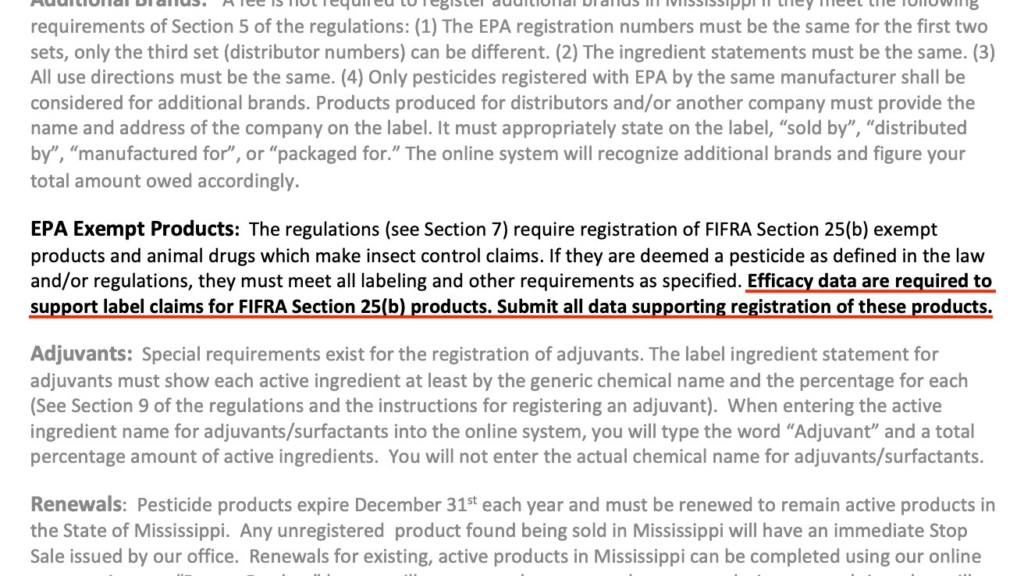This week, details of the settlement in the class-action lawsuit against Spartan Mosquito (Hattiesburg, Mississippi) were revealed. The lawsuit accused Spartan Mosquito of falsely advertising that the Spartan Mosquito Eradicator (yeast, sugar, table salt) and the Spartan Mosquito Pro Tech (yeast, sugar, boric acid) attract and kill mosquitoes, and that the company did so with the full knowledge that such claims were false.
Components of the settlement
- Spartan Mosquito will pay approximately $3,600,000.
- People who purchased either of the products between December 21, 2016 and August 2, 2023 can submit claims for compensation.
- Spartan Mosquito will no longer make or sell the Spartan Mosquito Eradicator.
- Spartan Mosquito will conduct efficacy tests on the Spartan Mosquito Pro Tech for 18 months, and if testing reveals lack of efficacy the company will change the formulation or cease sales.
Here is the full text of the two non-monetary provisions (bolding mine):
- “12.1. As of the Final Effective Date, Defendant will no longer manufacture or sell the Spartan Mosquito Eradicator. However, the Parties acknowledge that some third-party wholesalers, distributors, or retailers outside of Defendant’s control who previously purchased the Spartan Mosquito Eradicator for resale may continue to list the product for sale, and such sales will not be attributed to Defendant for the purposes of this Section 12.1. This Court shall have continuing jurisdiction if a dispute arises between Class Counsel and Defendant concerning Section 12.1.”
- “12.2. During the 18-month period following the Final Effective Date, to the extent not already performed, Defendant will conduct research regarding the efficacy of the Spartan Mosquito Pro Tech. Following the 18-month period, to the extent such testing shows a lack of efficacy for the Spartan Mosquito Pro Tech, Defendant will either update the formulation or cease sales of the Spartan Mosquito Pro Tech. This Court shall have continuing jurisdiction if a dispute arises between Class Counsel and Defendant concerning Section 12.2.”
The first part is uninteresting because the company stopped producing and selling the Spartan Mosquito Eradicator in 2020. It made this decision presumably because approximately 18 states had banned sales and more are likely to do that in the future. More importantly, the company decided to advertise that the new version (Pro Tech) needed to replaced every 30 days (instead of every 90 days) and that twice the number of tubes were needed per acre. I.e., the new tube would generate much more profit.
The second part is concerning. Although it says that if the company can’t show efficacy of the Spartan Mosquito Pro Tech by early 2025 then it must stop sales, the wording suggests that the company will be allowed to conduct its own efficacy testing. The wording also appears to allow Spartan Mosquito to assert that it already has such data. Such wording virtually guarantees that the company will be allowed to continue making and selling its tubes even though they do not attract or kill mosquitoes. I.e., examination of the company’s testing data (which I obtained via public records requests) shows that Spartan Mosquito does not have any field testing that shows (1) mosquitoes are attracted to the Pro Tech, that (2) mosquitoes drink the fluid inside the tubes, or that (3) the numbers of mosquitoes are reduced in a given area. The testing documents (which include details on experimental design) also show that Spartan Mosquito doesn’t currently employ personnel who have the requisite qualifications to run field trials or even basic laboratory experiments. Indeed, all of their tests are so poorly done that they were labelled, “not conducted in full compliance with Good Laboratory Practices” (an EPA term).
The second part also says that if efficacy cannot be shown, that Spartan Mosquito must “update the formulation.” Under this scenario, the company would need to submit an entirely new registration application to the EPA, complete with new efficacy tests. I think the EPA would be extremely unlikely to ever grant another registration to this company. I suspect the company knows this, which will motivate them to claim, despite evidence to the contrary, that the current formulation has efficacy.
Both parts contain an interesting phrase, however: “This Court shall have continuing jurisdiction if a dispute arises between Class Counsel and Defendant.” Optimistically, I take that to mean that if Spartan Mosquito sells the Pro Tech without ever sharing convincing evidence of efficacy, the presiding judge, the Honorable Katherine Levine, may intervene in whatever way she sees fit. Attorneys on both sides signed off on that binding language so it will be very interesting to see how this goes down. I will make sure she’s kept up to date.
Why did Spartan Mosquito settle?
Aside from avoiding paying the full $5 million asked for in the original charge, Spartan Mosquito was likely concerned, or should have been, that the evidence that would be revealed during a trial would be used by attorneys at the Environmental Protection Agency, which has apparently been collecting information on the company. In particular, the EPA can ask for prison terms for any individuals who knowingly mislead the government about pesticide efficacy. The co-founders, Jeremy Hirsch and Chris Bonner, could have been advised by their attorneys that they had some exposure in that regard. For example, if both of them have known for years that the tubes don’t produce enough carbon dioxide to attract mosquitoes, then asserting to federal regulators that the tubes attract mosquitoes would be a knowingly false claim. And that appears to be what they did.
More information
Please see my previous posts about Spartan Mosquito, or email me.

